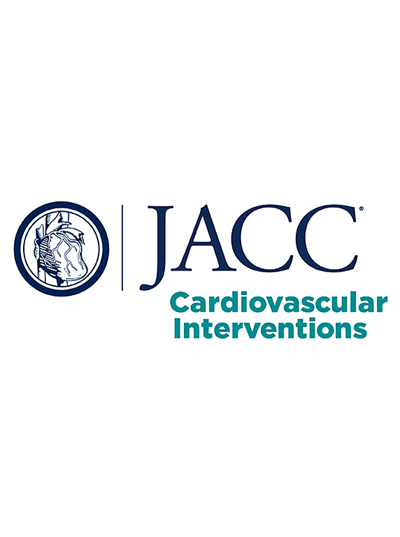二尖瓣经导管边缘到边缘修复术后出血并发症的趋势、预测因素和结果
IF 11.7
1区 医学
Q1 CARDIAC & CARDIOVASCULAR SYSTEMS
引用次数: 0
摘要
背景动脉经导管手术后出血事件与发病率和死亡率增加有关。作者试图探讨二尖瓣经导管边缘到边缘修补术(M-TEER)后院内出血事件与患者预后的关系。方法纳入2013年至2022年期间TVT(经导管瓣膜治疗)注册中接受M-TEER的患者。比较了发生院内大出血或危及生命出血的患者与未发生出血的患者的主要终点(30 天内死亡或再次入院的复合终点)发生率。次要分析研究了院内出血与死亡或 1 年后再入院之间的关系,以及院内大出血的独立预测因素。结果在研究期间,51,533 名患者中有 1,205 人(2.3%)发生了院内大出血。随着时间的推移,出血率有所下降(从2013年的7.1%降至2021年的2.0%;P< 0.001)。院内出血与30天(调整后OR:2.15 [95% CI:1.81-2.54];P <;0.0001)和1年(调整后HR:1.43 [95% CI:1.27-1.60];P <;0.0001)的死亡或再入院率增加有关。结论 M-TEER术后出血与后续死亡和再入院风险增加有关。尽管随着时间的推移出血并发症的减少令人鼓舞,但仍需继续努力进一步减轻 M-TEER 的出血并发症。本文章由计算机程序翻译,如有差异,请以英文原文为准。
Trends, Predictors, and Outcomes of Bleeding Complications After Mitral Transcatheter Edge-to-Edge Repair
Background
Bleeding events after arterial transcatheter procedures are associated with increased morbidity and mortality. The frequency and clinical implications of bleeding after mitral transcatheter edge-to-edge repair (M-TEER) have not been well-studied.
Objectives
The authors sought to explore the association of in-hospital bleeding events after M-TEER with patient outcomes.
Methods
Patients undergoing M-TEER who were included in the TVT (Transcatheter Valve Therapy) Registry between 2013 and 2022 were included. Rates of the primary endpoint, the composite of death or hospital readmission at 30 days, were compared between patients who experienced in-hospital major or life-threatening bleeding vs those without bleeding. Secondary analyses examined the association between in-hospital bleeding and death or readmission at 1 year, as well as independent predictors of major in-hospital bleeding.
Results
Over the study period, in-hospital major bleeding occurred in 1,205 (2.3%) of 51,533 patients. Rates of bleeding decreased over time (from 7.1% in 2013 to 2.0% in 2021; P < 0.001). In-hospital bleeding was associated with increased rates of death or readmission at both 30 days (adjusted OR: 2.15 [95% CI: 1.81-2.54]; P < 0.0001) and 1 year (adjusted HR: 1.43 [95% CI: 1.27-1.60]; P < 0.0001). The strongest correlates of in-hospital bleeding included female sex, prior percutaneous coronary intervention, baseline hemoglobin, greater procedure acuity, and longer procedure duration.
Conclusions
Bleeding after M-TEER is associated with increased risk of subsequent death and hospital readmission. Although reductions in bleeding complications over time are encouraging, continued efforts are needed to further mitigate hemorrhagic complications of M-TEER.
求助全文
通过发布文献求助,成功后即可免费获取论文全文。
去求助
来源期刊

JACC. Cardiovascular interventions
CARDIAC & CARDIOVASCULAR SYSTEMS-
CiteScore
11.60
自引率
8.80%
发文量
756
审稿时长
4-8 weeks
期刊介绍:
JACC: Cardiovascular Interventions is a specialist journal launched by the Journal of the American College of Cardiology (JACC). It covers the entire field of interventional cardiovascular medicine, including cardiac, peripheral, and cerebrovascular interventions. The journal publishes studies that will impact the practice of interventional cardiovascular medicine, including clinical trials, experimental studies, and in-depth discussions by respected experts. To enhance visual understanding, the journal is published both in print and electronically, utilizing the latest technologies.
 求助内容:
求助内容: 应助结果提醒方式:
应助结果提醒方式:


